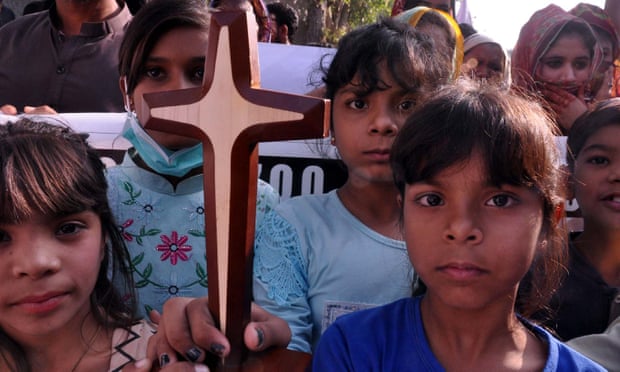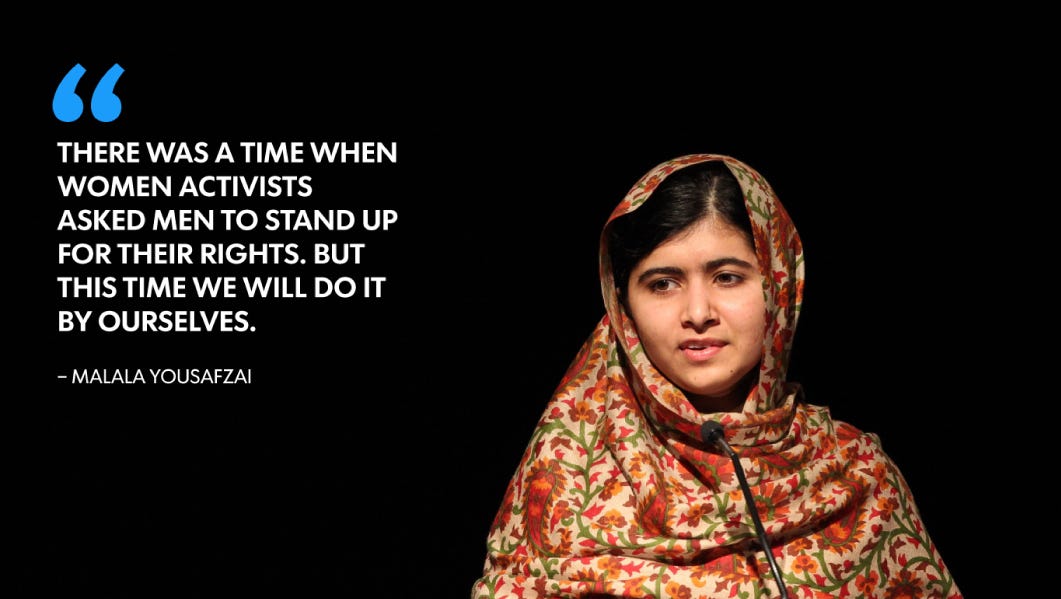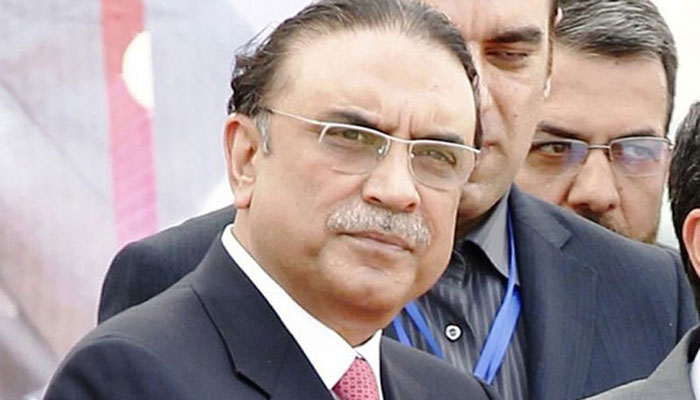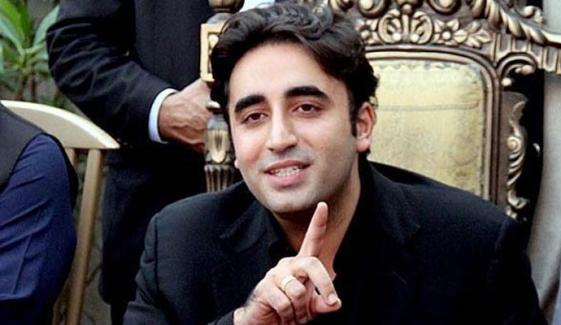M WAQAR..... "A man's ethical behavior should be based effectually on sympathy, education, and social ties; no religious basis is necessary.Man would indeed be in a poor way if he had to be restrained by fear of punishment and hope of reward after death." --Albert Einstein !!! NEWS,ARTICLES,EDITORIALS,MUSIC... Ze chi pe mayeen yum da agha pukhtunistan de.....(Liberal,Progressive,Secular World.)''Secularism is not against religion; it is the message of humanity.'' تل ده وی پثتونستآن
Monday, March 8, 2021
#InternationalWomensDay #WomensDay #womensday2021 - Family of girl, 12, forced to marry abductor condemn Pakistan authorities
Criticism follows release of 29-year-old who kept girl chained in cattle pen, in latest case highlighting abuses of religious minorities.The family of a 12-year-old girl in Pakistan who was chained up in a cattle pen for more than six months, after allegedly being kidnapped and forced to marry her abductor, have attacked the authorities for refusing to act. The case is among those now being examined by a government inquiry into the forced conversions of religious minority women and girls, after police released the man, saying they believed the girl had married him of her own free will.
The child was taken from her home in Faisalabad last June and had been held at the home of 29-year-old Khizer Hayat, where she was made to work clearing animal dung. Her family are angry that no further action has been taken against the man. Police investigators initially held Hayat but then released him, saying there was no evidence the girl had not consented to the marriage and that a medical report said she was 16.“The case has been taken up by the parliamentary committee of human rights in the Senate of Pakistan and police are attending the committee’s hearings. She confessed before the magistrate … that she married Khizer Hayat of her own free will and she wants to live with him,” said Musaddiq Riaz, a detective with Faisalabad police. The father of the girl – who is not being named to protect her identity – told the Guardian that the police had discovered his daughter at a house in Hafizabad, 110km (68 miles) from her home. “They repeatedly raped my daughter. She was in trauma after being subjected to physical and mental torture. They had forcibly converted her to Islam. She was kept as a slave and forced to work having a chain attached to her ankles. Police were not registering my complaint and threatened me [for] being a minority Christian and used discriminatory remarks,” he said. “She was brought to the police station after negotiations with her abductors and she was bandaged at the police station,” he said. “She was traumatised and I still can’t believe she testified in favour of her kidnappers.” He disputed the court report and showed his daughter’s birth certificate along with photographs of deep cuts and sores on her ankles. According to a 2019 report by the human rights commission of Pakistan, an estimated 1,000 Christian and Hindu women are abducted and forcibly married every year. Many of the victims are minors. Sexual assaults and fraudulent marriages are used by perpetrators to entrap victims, and authorities rarely intervene. Pakistan’s tiny Christian population of about 2.5 million in the Muslim majority country of 223 million faces frequent discrimination. In 2020 a 14-year-old Catholic girl from Faisalabad was kidnapped at gunpoint and forced to “marry” her 45-year-old kidnapper. She managed to escape and is in hiding with her parents after a court ruled she must return to her abductor.
Lala Robin Daniel, an activist based in Faisalabad, said of the recent case: “Despite the parliamentary Senate committee for human rights hearings, I am not hopeful that justice will be served to the poor family. She was injured and in a state of trauma.“Teenage girls from religious minority groups are often targeted for forced conversions and marriages due to certain gaps in the law and weak laws. Police and judiciary make fun of the parents seeking justice,” she said. John Pontifex, of Catholic organisation Aid to the Church in Need, said the British government should be looking at the issue: “This case should sound a warning shot to the UK government, questioning the efficacy of its aid strategy, which for years prioritised funding to Pakistan. Given the institutionalised nature of abuse of young girls of minority faith backgrounds, we should in good conscience ask: is UK aid to Pakistan being used wisely? Is it aiding the girls or abetting the problem?” He added: “We receive reports every week of incidents in which girls of minority faith backgrounds are abducted, gang-raped, forcibly converted and who are made to marry their abductor. “And it seems the state is complicit by failing to investigate cases, failing to bring the perpetrators to justice and sanctioning child marriages.” In December, Pakistan’s prime minister Imran Khan ordered an inquiry into the forced conversions of religious minority women and girls. Tahir Mehmood Ashrafi, Khan’s special representative for religious harmony, said: “We are aware of the incident and the state of Pakistan is fully committed to ensure justice to minorities whether it’s forced marriage or forced conversion. “We will not tolerate these acts. We will pursue the case, no one is above the law and we will take serious action against the culprits … We are working on the formulation of interfaith harmony councils at the local level to ensure minority protection and to resolve such cases promptly.”
#InternationalWomensDay #WomensDay #womensday2021 - 'Pandemic of patriarchy': Pakistani women defy threats to hold march
Healthcare is focus of event to mark International Women’s Day, as organisers say pandemic has led to setbacks in rights.
A march during the time of Covid is a difficult thing to plan safely. For Pakistan’s women, determined to have their “Aurat March” today, there are other risks – to their physical safety as well as of online abuse and trolling. Noor is an organiser for this year’s masked nationwide rallies. She said she could not give her surname for fear of reprisals over her work. “The pandemic has hindered mobilisation significantly,” said Noor, who added that the closure of public transport alone has been a huge obstacle to women in the country. But it is the healthcare crisis that is the focus of this year’s marches in Pakistan to mark International Women’s Day. The event is being organised online as well as on the streets, with organisers encouraging women to stay at home if the health risks outweigh the benefits. Those who do take to the streets are being asked to wear political slogans on their masks. Online, women are using the hashtag #PatriarchyKaPandemic (“Patriarchy’s Pandemic”) to mobilise women and call out everyday violence against women by “airing dirty laundry”, said Noor. During the pandemic Pakistan has seen a sharp rise in domestic violence cases, along with an increased burden of domestic and care work imposed on working women. With about 600,000 Covid-19 cases in Pakistan, this year’s manifesto for the march is markedly different from previous years’ because of the increased focus on health. Women are calling on the government to increase the health budget to 5% of GDP; implement a Covid-19 plan for women and minorities; tackle violence against women; assign equal recognition to women’s labour; and allocate more health resources for women and transgender people. In recent weeks, Noor has organised medical camps to speak to poorer Pakistani women about the health issues in their marginalised communities, most of which are linked to water and sanitation. Pakistan has among the world’s worst access to safe water, with almost 80% of the population unable to access clean drinking water. “You realise how inaccessible and unaffordable healthcare is for a lot of communities,” Noor said. “I might have access to healthcare, but they won’t.” Muqaddas Afzal, 25, vice-president of a group called the Progressive Students’ Collective in Lahore, said the pandemic had further exposed economic and social injustices. “It has also taught us that the pandemic of patriarchy is far worse than the Covid pandemic. Covid will be eradicated, but what about patriarchy?” “It’s a very timely theme,” said digital rights activist Nighat Dad. “In the pandemic, women’s health problems have come before everyone. I would call it a health emergency, to be very honest.” This is evident in the country’s maternal mortality statistics: 140 maternal deaths per 100,000 births. Nearly half of Pakistani mothers face malnutrition and almost 40% of children under five are stunted. Women are also calling for a fairer Covid-19 vaccine rollout in Pakistan, one of the few countries that has allowed private companies to import vaccines without price caps, exacerbating social inequalities. The pandemic has “unravelled many myths” about policies, said Zainab Najeeb, 28, who teaches gender and feminism at Lahore University of Management Sciences. Najeeb said women have faced a significant rise in care work at home, exacerbated by the increase in domestic violence. An organiser of the march in Islamabad, Tooba Syed, said: “The fight against patriarchy is a fight for recognition of care work and women’s role in social reproduction.” In the early days of the virus, female health workers who took part in door-to-door mass awareness campaigns about Covid-19 faced hostility and violence. “As domestic violence increased during the pandemic, the lady health workers were the only form of care available to survivors of domestic violence,” said Syed. “They’re the backbone of the public health system of the country.” Organisers are also calling for universal access to contraception and safe family planning, said Noor. “Our healthcare system doesn’t believe that women can make their own decisions. That’s our cultural mindset – there are so many hindrances and limits on women’s decision-making. We have to march, and we have to keep working on this movement. “When we march, we see a lot of women on the streets. It’s liberating and gives you a lot of hope. You see how many women are together in this and you see a hope for a change.”
https://www.theguardian.com/global-development/2021/mar/08/pandemic-of-patriarchy-pakistani-women-defy-threats-to-hold-march
#InternationalWomensDay #WomensDay #womensday2021 - OP-ED: Acknowledging Malala
Haya Fatima Sehgal
For International Women’s Day we highlight Malala Yousafzai as being one of the most powerful symbols of Women’s Empowerment in the world today.The story of Malala Yousafzai, the young Pakistani girl who was shot in 2012 by militants for expressing her opinions, is known across continents. After surviving the brutal attack, she went on to be an outspoken voice for promoting education. Sadly, several years later, Pakistanis fail to acknowledge the phenomenon that she has become worldwide. An Oxford graduate and the youngest Noble Peace Prize laureate, Malala Yousafzai is an emblem of women’s empowerment. Perhaps it is about time Pakistanis officially acknowledge and honor her heroic bravery. It would be beneficial for us where voices like hers are not disregarded but rather promoted and honored.Opinions have remained divided because of the various stories circulating about her circumstances. Most of these were unfair and further confounded people into silence or negativity. On one side was an extremist religious faction, which had created a terror network of fear. On another hand were those who denied her story, sparking great divisions and diatribe. Ms. Yousafzai was fortunate to have ample help and support by good people. Yes, mostly these have been foreigners who have supported her by helping her rebuild her life abroad. And there is nothing wrong with that. We must now consider striking a relationship with her existent status. There are many who have not welcomed her warmly over here and all that is by the tone of conversations, lack of media coverage and the unwillingness of upholding her as a national symbol. Even though she visited Pakistan in 2018, one felt it was overall a lukewarm response given as a welcome back.
#InternationalWomensDay #WomensDay #womensday2021 - World Women’s Day: ‘PPP takes pride a great woman led this party’
Former president of Pakistan Asif Ali Zardari has felicitated women all over the world in general and Pakistani women in particular on the World Women’s Day on 8th March.Asif Ali Zardari, who is also President Pakistan People’s Party Parliamentarians, in a message said that the PPP takes pride in the fact that a great woman led this party. “Shaheed Mohtarma Benazir Bhutto is regarded as a brave woman all over the world,” he said. He said that Pakistan needs an environment where women do not feel threatened and frightened. “The purpose of initiating the Benazir Income Support Programme was to empower women and instill confidence in them,” he said. Zardari said that the PPP in power always assured participation of women in every field of life. He said the PPP’s achievements for women include appointment of women judges in higher courts, establishment of women bank and women police stations. He said the PPP also introduced legislation against harassment of women at workplace. Chairman Pakistan People’s Party Bilawal Bhutto Zardari has said that gender equality and empowerment of women is his party’s manifesto and a dream of Shaheed Mohtarma Benazir Bhutto, for which the party leadership and every Jiyala (party worker) are struggling to make them a reality. In his message, the PPP chairman said that political, economic and social changes are taking place all over the world and it is clear that this century will be the century of women’s advancement. “A nation that does not give women equality will not be able to compete with other nations”, he maintained. Bilawal Bhutto Zardari said that his party, whether in government or on the ground of struggle, has taken concrete steps to promote gender equality and women’s empowerment, which are unprecedented in Pakistan. He pointed out that a mega model project for poverty alleviation like the Benazir Income Support Program (BISP) — which has been recognized by many global institutions like the World Bank for its transparency and positive results — was launched beside another program introduced on the Union Council level to provide interest-free loans to women for micro-businesses, which benefited more than 600,000 women and their families in Sindh. “As well as the First Women Bank, Women Police Stations and Lady Health Workers Program, which was started by Shaheed Mohtarma Benazir Bhutto herself, and the project of giving ownership of agricultural land to landless women farmers free of cost, are having far-reaching results in Pakistan,” he said. He further said that the establishment of the National Commission on the Status of Women, Anti-Women Practices Act, Anti-Acid Crimes Law, Protection of Women at Workplace Law at the federal level and many such other laws are also the hallmarks of PPP. said that the Sindh Assembly led by his party also adopted the Sindh Child Marriages Restraint Act 2013, Domestic Violence (Protection & Prevention) Act 2015 and Commission on the Status of Women 2015 from the Sindh Assembly. Bilawal said that he is well aware of the fact that there is a long way to go to achieve Shaheed Mohtarma. https://www.thenews.com.pk/print/800754-world-women-s-day-ppp-takes-pride-a-great-woman-led-this-party
Chairman PPP Bilawal Bhutto Zardari press conference after PDM meeting in Islamabad
Chairman Pakistan Peoples Party, Bilawal Bhutto Zardari after the PDM meeting in Islamabad on 8 March addressing a press conference with PDM head Maulana Fazlur Rehman and vice president PML-N Maryam Nawaz, said that we condemn establishment interference in politics and we also appreciate when they do not.Bilawal Bhutto Zardari said that if there is any interference by the establishment in the elections of Chairman and Deputy Chairman Senate elections then as Maulana Fazlur Rehman has already said, we will put all facts in front of the people of Pakistan. We want free and fair elections. Efforts are being made to remove Syed Yousuf Raza Gillani from the race of Senate Chairman but we hope that the ECP and the courts will decide judiciously and the government will fail in its efforts. This shows that the government has already lost in the election of Chairman and Deputy Chairman Senate elections.
Chairman PPP said that PDM is following the action plan presented by the PDM on 20 September in its first meeting. The PDM takes decisions with consensus. He said that he visited Chaudhry Shujaat Hussain to enquire about his health.
حکومت نے چیئرمین سینٹ کے الیکشن سے قبل اپنی شکست تسلیم کی، بلاول بھٹو
اسلام آباد میں پریس کانفرنس کرتے ہوئے بلاول بھٹو نے کہا کہ وہ غیر جمہوری طریقوں سے ہمارے امیدوار کو روکنا چاہتے ہیں۔
بلاول بھٹو زرداری نے کہا کہ امید رکھتے ہیں الیکشن کمیشن اور عدالت آئین و قانون کے مطابق کام کریں گے۔
پی پی چیئرمین نے کہا کہ لانگ مارچ سے متعلق پوری قیادت ایک پیج پر ہے، فیض آباد کا نام لیا ہے تو یہ پنڈی میں بھی ہے اور اسلام آباد میں بھی ہے۔
بلاول بھٹو نے کہا کہ کل چوہدری شجاعت اور حمزہ شہباز سے بھی ملاقاتیں ہوئیں، اب فیصلہ پی ڈی ایم کرے گی کب اور کہاں عدم اعتماد آئے گا۔
https://jang.com.pk/news/895105







